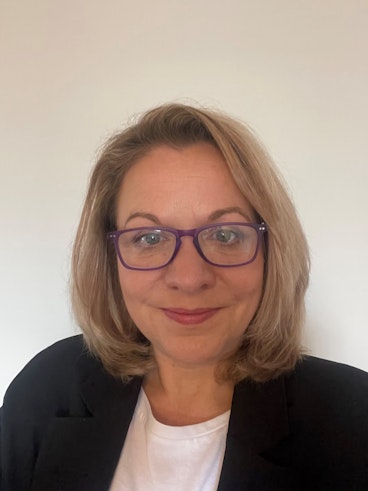Chat with Rebecca Sanders, Claims Manager, Specialty Third Party Administration
24th February 2023

What is your current role?
Across the Group we have an extensive end-to-end hub for the ownership, oversight and control of any claim across all customer, technical, financial and supply chain activity.
I manage the Roger Rich & Co office which is based in Chipping Norton. We joined Claims Consortium Group following last year’s acquisition by the Group, to expand their existing third-party administration (TPA) offering. We have a specialist team of technical claims handlers and administrators whose depth of knowledge of insurance products has grown over the last 20 plus years that most of the team have worked together.
What does the specialty TPA team do day to day?
Every day can look very different! A lot depends on what is going on in the world that day. Over the years we have handled a multitude of different types of claims at a desk top level. From the usual household contents and buildings to specialist professional sports policies for jockey’s, boxers, rugby players, golf, and tennis players. We also manage claims such as schoolteacher, doctor, dentist and pharmacist locum policies, pet businesses, amateur football players and pedal bike insurance, to name a few!
The team specialise in Accident & Health claims which incorporates travel, but also niche insurance products, being anything that does not fit into a ‘standard’ claims handling box.
What are some of the more unusual of claims you have managed?
Dealing with the death and disability claims for staff members of the United Nations that were injured or killed in bomb attacks in Iraq, was challenging and interesting in equal measure. Assessing levels of disability under the continental scale necessitated a visit to United Nations Head Quarters in New York to work with their medical services team. Lessons were learnt from the assessment of the injuries and which ultimately led to changes in the wordings to include benefits for PTSD and scarring, which we were unable to consider at that time.
How have you added resilience and adaptability to your business over the past few years?
We have always worked closely with Cover Holders, Insurers and MGA’s to ensure that we understand their products, customer expectations and business. This means that many of our relationships have lasted for decades, which has led to retention of business but also the introduction of new business opportunities.
Throughout our time in the industry, we have seen insurance products change and adapt as the world does, not only to provide better and more innovative products, but in reaction to world events, such as wars, the Icelandic ash cloud and of course Covid-19.
The news in the morning can be a huge indicator as to how our day or week will go beyond just the weather forecast. From disruption in the rail networks, an airline that has gone into administration to an outbreak of foot and mouth disease – so many factors influence the amount of claims we could potentially be notified of. Advanced notification of these events gives us the opportunity to be proactive in advising our policyholders on coverage at first notification of loss, and managing their expectations.
How has your business philosophy evolved since you began in the industry?
Our philosophy has always been to provide intelligent, holistic claims handling solutions. We are not, and never have been, a ‘tick box’, ‘read from script’ team. We are driven by customer satisfaction for all those we interact with by incorporating the traditional values of the past and embracing new and innovative technology such as Claims Consortiums Group’s Synergy Cloud software.
Consumer attitudes are changing – how is the insurance industry evolving to meet their demands?
I think the industry recognises the importance of harnessing technology and data to support but not replace, traditional customer service. The right technology combined with valuble data supports automation, parametric insurance and more. This in turn helps service claims faster and more efficiently to help provide the levels of service that customers now expect and receive in other sectors. But technology can never replace the human touch, rather by freeing up claims handlers time they can provide a more personal and dedicated service to the people who really need it because they have more complex claims or are vulnerable. The two work best in tandem and I think as the industry embraces new technology its important, we stay mindful of this.










